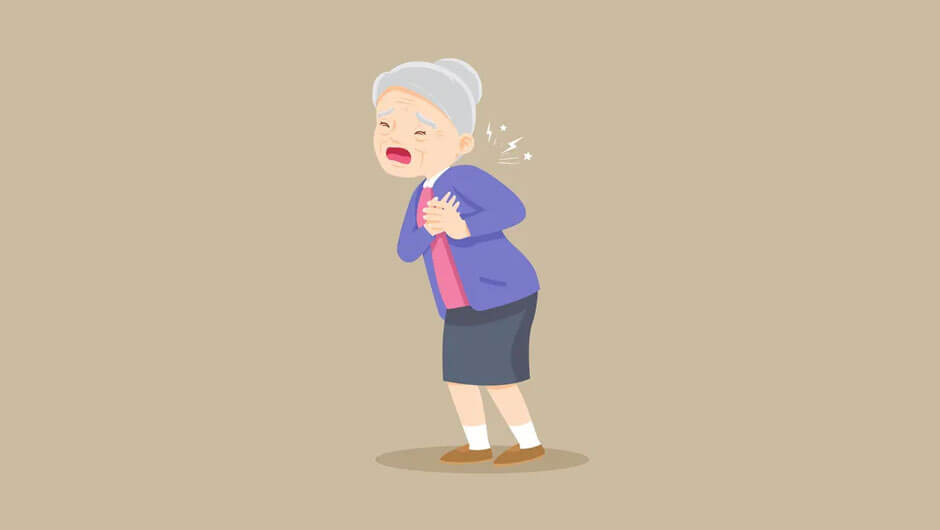Cardiovascular Issues

~Dr. Raghav Thukral
Cardiovascular Disease
Cardiovascular diseases (CVDs) affect the heart and blood vessels. Almost half of all adults in the U.S. have at least one CVD. You may make lifestyle changes to manage cardiovascular disease or your healthcare provider may prescribe medications. The sooner you detect cardiovascular disease, the easier it is to treat.
What is cardiovascular disease?
Cardiovascular disease refers to a group of diseases that affect the heart and blood vessels of the body. These diseases can affect one or many parts of heart and /or blood vessels. A person may be symptomatic (physically experience the disease) or be asymptomatic (not feel anything at all).
What conditions are cardiovascular diseases?
There are many different types of cardiovascular diseases including but not limited to:
- Arrhythmia: Problem with the electrical conduction system of the heart which can lead to abnormal heart rhythms or heart rates.
- Valve disease: Problem with the heart valves (structures that allow blood to flow from one chamber to another chamber or blood vessel), such as valve tightening or leaking.
- Coronary artery disease: Problem with the blood vessels of the heart, such as blockages.
- Heart failure: Problem with heart pumping/relaxing functions, which lead to fluid build up and shortness of breath.
- Peripheral artery disease: Problem with the blood vessels of the arms, legs or abdominal organs, such as narrowing or blockages.
- Aortic disease: Problem with the large blood vessel that directs blood from the heart to the brain and rest of the body, such as dilatation or aneurysm.
- Congenital heart disease: Heart problem that a person is born with, which can affect different parts of the heart.
- Pericardial disease: Problem with the lining of the heart, including pericarditis and pericardial effusion.
- Cerebrovascular disease: Problem with the blood vessels that deliver blood to the brain, such as narrowing or blockages.
- Deep vein thrombosis: Blockage in the veins, vessels that bring blood back from the brain/body to the heart.
Are heart attacks and strokes cardiovascular diseases?
Heart attacks and strokes are very serious complications of cardiovascular disease that occur when heart arteries and brain arteries have a sudden blockage, respectively.
How common is cardiovascular disease?
Cardiovascular disease is the leading cause of death around the world and in the India Almost half of adults in the U. S. have some form of cardiovascular disease. It affects men AND women. In fact, 1 in 3 women die from cardiovascular disease. It affects people of all ages, ethnicities, and socioeconomic levels.
What causes heart disease and cardiovascular disease?
The causes of cardiovascular disease can vary depending on the specific type of cardiovascular disease. For example, coronary artery disease or peripheral artery disease is caused by atherosclerosis (plaque buildup in the arteries). Arrhythmias can be caused by coronary artery disease, scarring of the heart muscle, genetic problems, or medications, to name a few. Valve disease can be caused by aging, infections, rheumatic disease, etc.
You may be more likely to develop cardiovascular disease if you have risk factors such as:
- High blood pressure (hypertension).
- High cholesterol (hyperlipidemia)
- Tobacco use.
- Diabetes.
- Family history of heart disease.
- Sedentary lifestyle or obesity.
- Diet high in sodium, sugar and fat.
- Excessive alcohol use.
- Preeclampsia or toxemia.
- Gestational diabetes.
- Chronic inflammatory or autoimmune conditions.
- Chronic kidney disease.
What are the symptoms of cardiovascular disease?
Cardiovascular disease symptoms can vary depending on the cause. You might experience:
- Chest tightness or pressure.
- Difficulty catching your breath.
- Dizziness or fainting.
- Fatigue.
- Fluid build up.
- Heart palpitations (heart pounding or racing).
- Pain or numbness in your legs or arms.
- Abdominal pain, nausea, vomiting.
It is important to note that women or elderly persons may have more subtle symptoms, but still have serious cardiovascular disease.